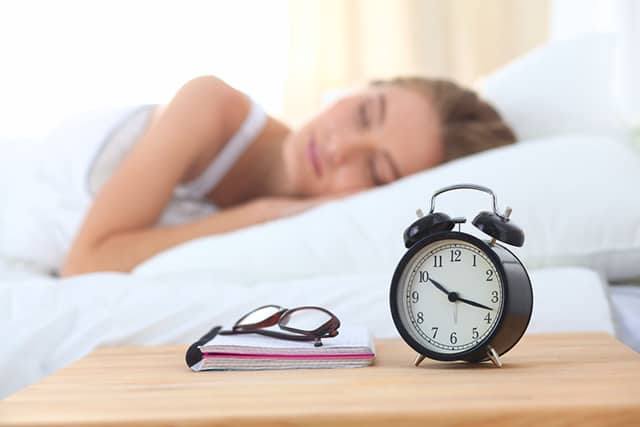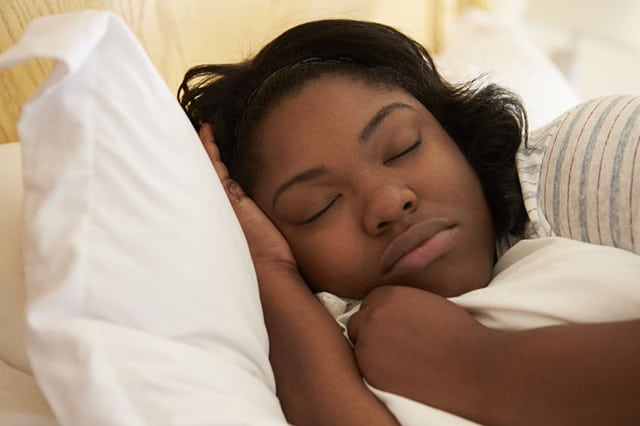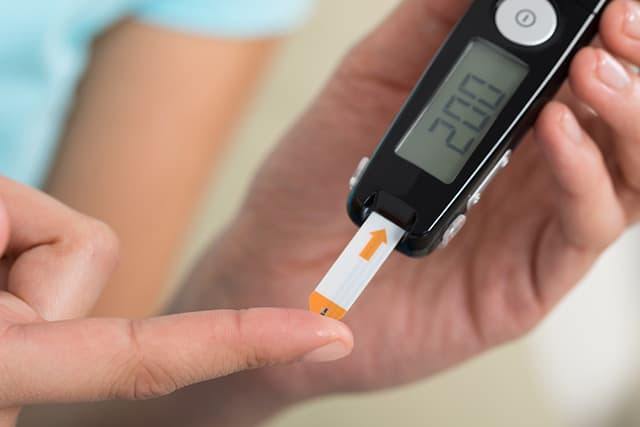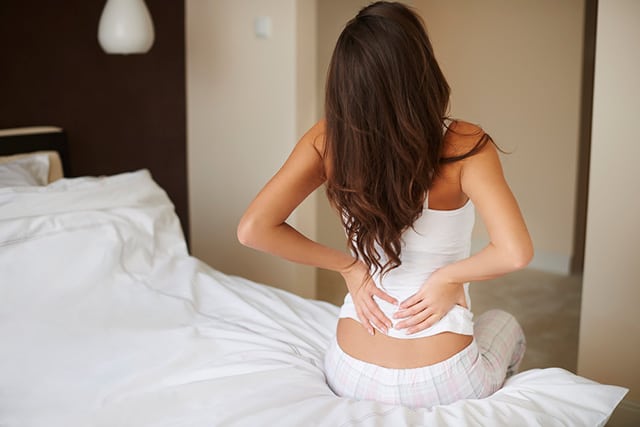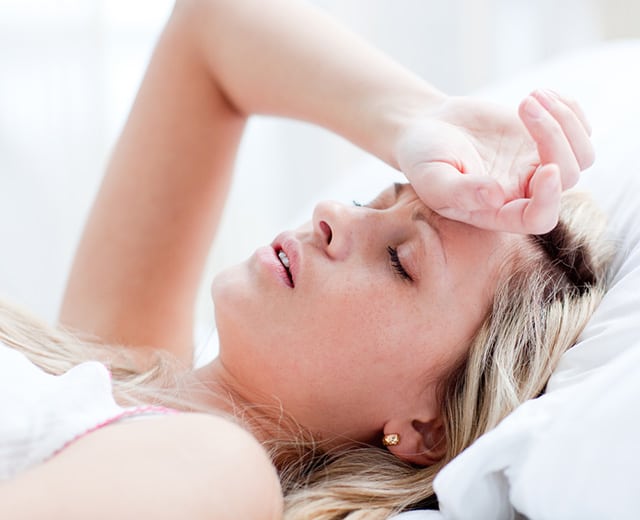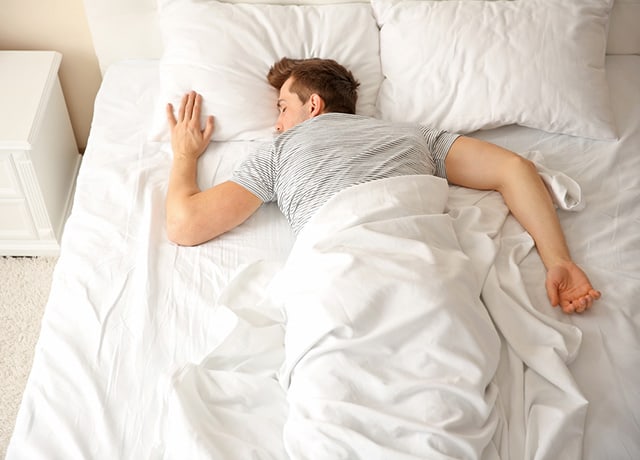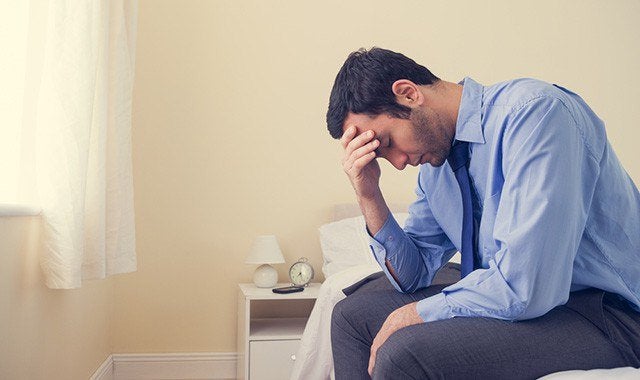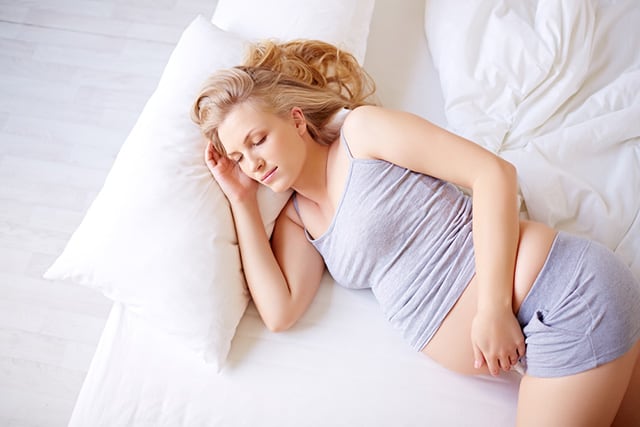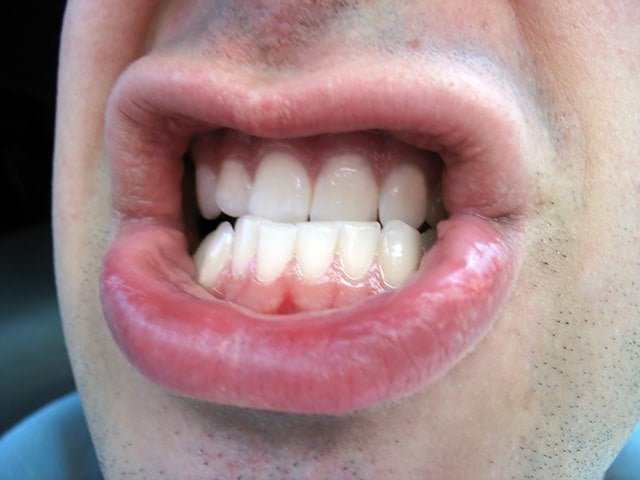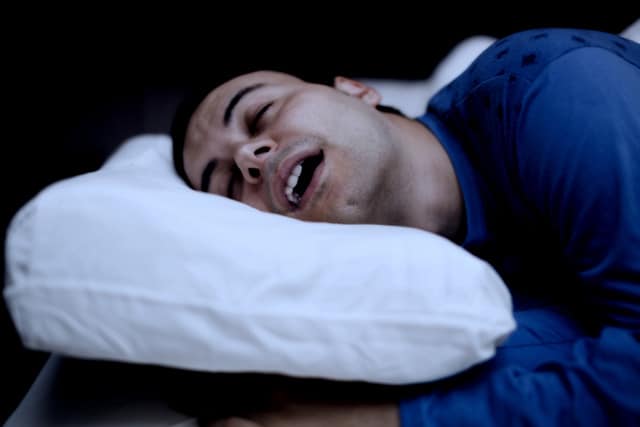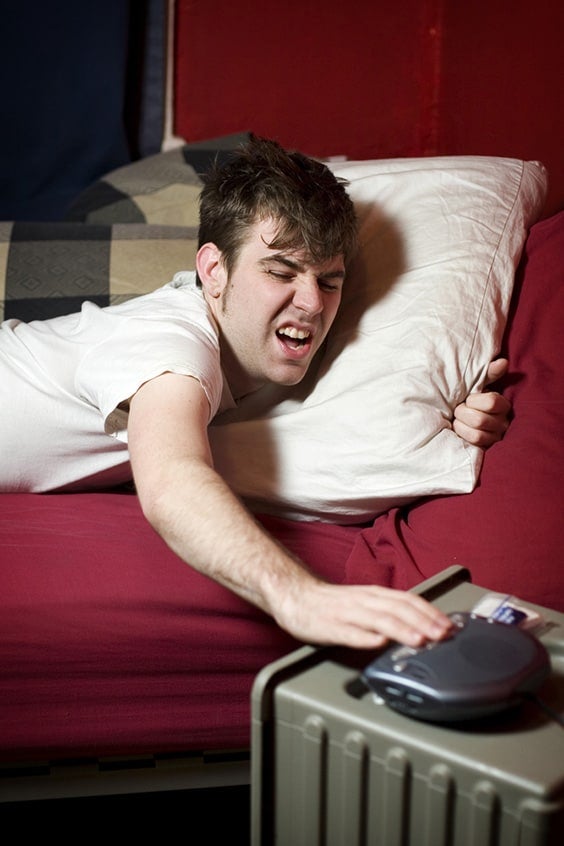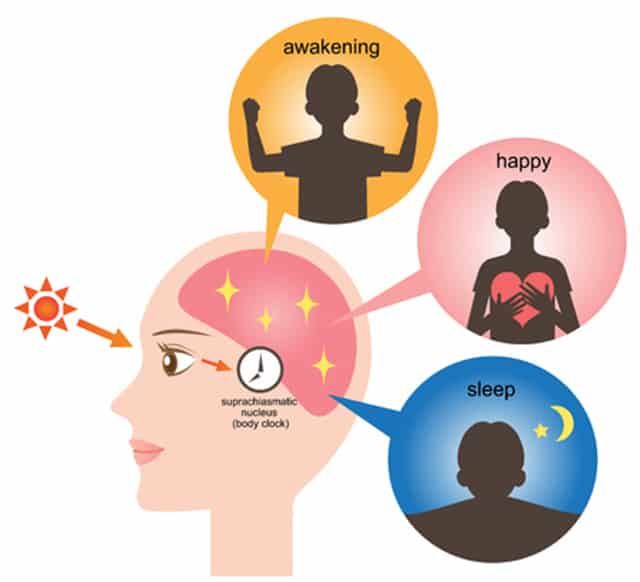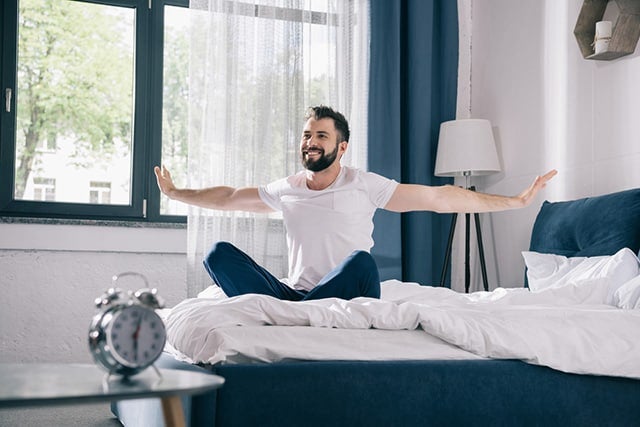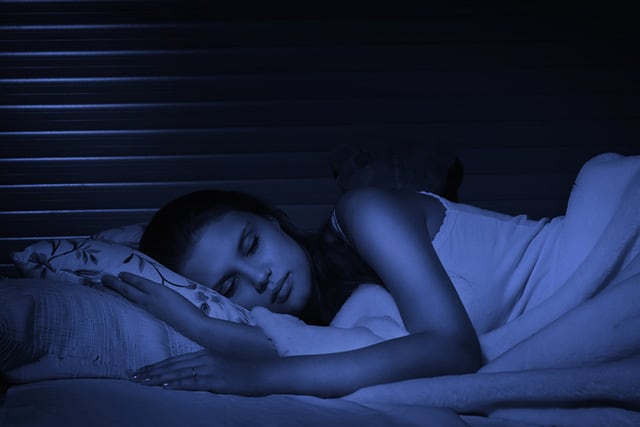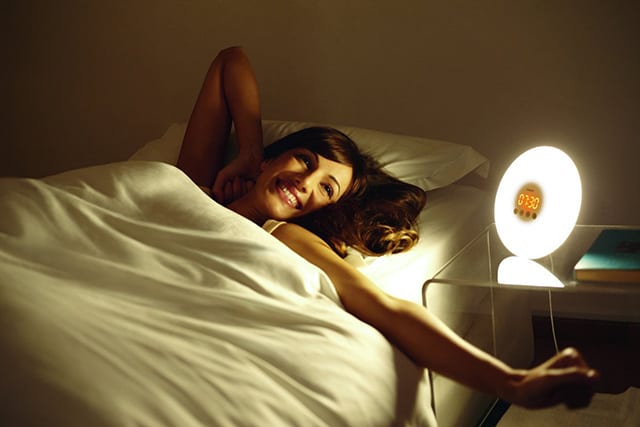There is perhaps nothing greater than hitting the snooze button on your alarm clock in the morning and getting nine more precious minutes of sleep, right? Even better are those few days off when you get to sleep in past your regular getting-out-of-bed time. However, sleeping in may lead to oversleeping, which certainly has its own risk factors.
You’re likely aware of the negative effects associated with not getting enough sleep, but there are also negative effects of oversleeping. Getting too much of a good thing could be harming you in more ways than you’d expect, so we’ve unpacked each of these risk factors for you below.
Effects of Oversleeping
It may seem strange to think that oversleeping could be bad for you, but the dangers of getting too much sleep can manifest in a myriad of ways. Too much sleep has been associated with obesity, diabetes, depression, back pain, heart disease, a higher mortality rate, and at the very least, grumpiness.
With that said, oversleeping isn’t necessarily the cause for any of those issues, diseases, or conditions, but scientific studies have pointed to a correlation. Just as insomnia is a widespread issue – being able to sleep – so is hypersomnia, where one gets too much sleep. While these are serious conditions, others simply sleep too much for reasons that are unrelated. For example, when you stay out super late on a Friday night and reward yourself by sleeping until 2 p.m. the next day.
The effects of oversleeping can be life-altering. At the very least, you may be late to appointments or work. At worst, you’re putting yourself at risk of disease and life-threatening conditions. Have you ever noticed that you feel less rested the more sleep you get? This is because you’re altering your natural circadian rhythm. It’s the little part of your brain that lets you know when you’re hungry, thirsty or tired. It’s also responsible for regulating your energy so you can get through the day. If you interrupt this natural flow, your body reacts by resetting your cycle without your consent. This is why you’d feel sluggish after a 12-hour nap, and also how we can explain jet lag.
Circadian Rhythm’s Importance
Now that you know circadian rhythm is essentially our internal clocks, you should know how it works. It determines the best time for you to eat and sleep based on your stored energy, and this is true for all animals and human beings.
This internal clock is linked to cell regeneration, which is important for your immune system and overall health. It also keeps your hormone production in check, which is necessary for many of your organs to function properly. Your brain sends signals to your body to produce a variety of hormones to regulate your metabolism (the thyroid gland) as well as your blood pressure, adrenaline and many more.
If you knock this system out of whack, your brain and body scramble to be back in sync. One of the major interruptions of sleep is light. We’re conditioned to respond naturally to the sun rising; when the sun rises, so do we. Light is actually the trigger to help reset our internal clocks. If you’re suffering from an out-of-whack circadian rhythm, you could try exposing yourself to light to wake you in the morning and ensure your room is dark to get to sleep.
Amount of Sleep You Need
The ideal amount of sleep varies from person to person, but there’s an easy way to figure out how much sleep you need each night. Age is the key determining factor to find out roughly how much you need.
Newborns
Newborns are a bit like cats – they need about 14 to 17 hours of sleep each day. This then begs the question, why does it seem like they’re always awake and screaming?
Infants
Infants require less sleep, but generally babies from 4 to 11 months old need about 12 to 15 hours of sleep every day.
Toddlers
Toddlers need even less sleep as they grow. So your tots should ideally be getting about 11 to 14 hours of sleep.
Once your 1 to 2-year-old gets to preschooler age, you can reduce the amount of sleep they get by one hour. About 10 to 13 hours should be plenty for them to feel fully rested.
Children from 6 to 13 years old
Children aged 6 to 13 years old can get by on 9 to 11 hours of sleep each night. This means midday naps are still a good idea.
Teens
Teens seem to sleep their summers away, but really 14 to 17-year-olds should only be getting 8 to 10 hours of sleep each night. Consider setting several alarms to wake them up on time for those part-time jobs.
Adult
Once you hit your adult years, everyone needs approximately 7 to 9 hours of sleep. This remains for the bulk of your life from about 18 to 64 years old.
65+
Beyond 65 years old, you require a little less sleep, but only by about an hour. You should still aim for 7 to 8 hours of sleep each night.
Physical Side Effects
You know the physical side effects from getting too much shut-eye, but do you know why our bodies respond negatively? Let’s look at the ways in which your body will start to protest that extra hour or five of sleep.
1. Obesity
Sleeping too much doesn’t make you fat – an unbalanced diet and not enough physical activity do. However, a recent study showed that those who slept 9 to 10 hours per night were more than 20% more likely to become obese over six years than those who achieved the recommended amount of sleep, closer to 7 or 8 hours.
2. Diabetes
Getting a few extra hours of sleep here and there won’t pose too big a problem, but a study with nearly 9,000 Americans showed that those who regularly slept more than 9 hours per night have a 50% increased risk of developing diabetes. Too little sleep was also found to be harmful, so don’t cut your night of snoozing short to 5 hours.
It’s important to note that this study didn’t conclude that correlation was causation. It determined that those who slept more had a greater risk of diabetes, but there may have been other medical problems that were causing the participants to sleep more, also potentially leading to diabetes.
3. Back Pain
When you’re injured, the last thing you want to do is exercise. In fact, doctors used to prescribe bed rest as a treatment for all sorts of pain. Cramps? Lay down. Joint pain? Kick up your feet and take a nap. Back pain was also met with a suggestion of heading to bed. However, with advances in science and medicine today, doctors realized that a body in motion stays in motion (didn’t we learn that a long time ago?). This means that being stationary for long periods of time (e.g. laying in bed for longer than the average 7-9 hours) can contribute to stiff muscles and even back pain.
Today, physicians are suggesting you get the normal amount of sleep and maintain a healthy and active lifestyle. Of course, if you’re experiencing back pain, you may want to forgo a 5K run or climbing a mountain every weekend. However, it’s important to keep your body moving and avoid being sedentary for prolonged periods of the day.
4. Headaches
Ever wake up late one morning with an intense throbbing in your head? You guessed it, that headache may be self-induced. You indulged a bit too much in sleeping in, and now you’re paying for it with a serious headache. If you’re susceptible to headaches or migraines, sleeping in will only make it worse.
Researchers believe this is because of neurotransmitters in the brain, and particularly the lovely one that helps us go to sleep and stay asleep: serotonin. Low levels of serotonin are linked to other issues as well, such as depression and anxiety.
5. Heart Disease
Your heart takes care of you, so you should in turn take care of it. One of the ways to keep it healthy and functioning is to avoid oversleeping. A study of almost 72,000 women showed that sleeping 9 to 11 hours per night led to a 38% increase in the chance of developing coronary heart disease than those who kept it to 8 hours per night.
The tricky part is that researchers have no clue why heart disease and oversleeping are linked. It’s possible that oversleeping is simply your body’s way of screaming at you, “HEY! Something’s wrong here!” It’s possible that heart disease may be the result of another physiological issue, and that oversleeping can be a contributing factor rather than the sole cause.
It still may be hard to believe that getting some extra sleep could be so harmful, but we’ve only scratched the surface. There are many more dangers to drawing your curtains tight and not waking up when you need to.
You may be interested in: The Link Between Sleep & Your Heart Health
Psychological Side Effects
Sleep is an important part of the whole brain-body relationship. When you’re at rest, your brain does all sorts of things, like telling your glands to release hormones, directing cells to regenerate and processes your memories. The 7 to 9 hours of sleep you have each night lets your body reset and repair itself. However, when you get too much sleep, your brain’s routine is completely interrupted. Oversleeping can lead to all sorts of mental side effects, in addition to the physical ones.
1. Depression
Remember what we mentioned about serotonin? Well, you need this chemical for your brain to effectively communicate with your cells. When you have an imbalance of serotonin, this can lead to disorders such as the onset of depression.
How is this related to sleep? As well as psychological disorders, imbalanced levels of serotonin are also linked to sleep disorders. If a neuronal pathway fails, a cell might not receive the serotonin and its message, which disrupts our regular behavior. It’s a bit like telling a messenger an important piece of information, but the messenger can’t get to the recipient. This prevents communication and creates inaction, which is clearly a big problem.
2. Anxiety
It would make sense that those who experience anxiety are likely not sleeping much at all. As much as insomnia is a marked trait among those who suffer from anxiety disorders, so is hypersomnia. The reason is more complicated than researchers would prefer, and it’d obviously be nice to have a clear-cut answer, but the brain is a complex thing.
If you’re already wrestling with anxiety, it can seem as though a great escape would be more sleep. However, many sufferers report greater anxiety after extra sleep, which definitely seems counterproductive.
3. Sleep Hangover
By far, this is the least serious side effect of getting too many hours of sleep, but it’s still uncomfortable for many. The feeling of sluggishness and fogginess is aptly dubbed a “sleep hangover.” You may not feel like yourself, and you may move slowly as you try to get on with your day. You’ll also be thinking and reacting slower, too.
“Sleep drunkenness” makes it harder for you to respond to your reality as it lowers your cognitive function. When you wake up confused because your whole sleep-wake cycle is off, there’s no telling what you might do, and this can be extremely dangerous.
One common thread in each of these risk factors is too much sleep. Interrupting your sleep patterns by sleeping more than usual means your cells are getting mixed signals or no signals at all from your brain, meaning that regular functionality, activity and your behavior is completely altered or nonexistent.
You may want to read: What is Sleep Drunkenness?
4. Too Much Sleep: Short Term
What happens to your body when you sleep too much after just one night of overindulging? You may experience some of that sluggishness mentioned earlier that’s related to a sleep hangover, or “sleep drunkenness”. You’ll likely have trouble getting through your day because you’ll be even sleepier than you were the previous day.
Chances are, you’re going to have trouble concentrating and remembering basic things about your day, like what was mentioned in your morning meeting at work if you didn’t take notes. Your cognitive function is underperforming, so you may end up asking people to repeat themselves a lot.
You’ll also probably notice – or at least others around you will – that you’re irritable, maybe sad, or just kind simply out of it. A weekend of naps and sleeping in isn’t likely to cause any permanent damage, but if you’re already suffering from depression or an anxiety disorder, oversleeping could make things worse.
5. Too Much Sleep: Long Term
Regularly sleeping too much can lead to all the nasty things mentioned above, and worse. Oversleep for six years and you could experience brain impairment that’s the equivalent to aging two extra years. That’s like losing two years of your life for every six years of oversleeping you do. Life is short enough already!
While you’re unknowingly causing damage to your brain, you may also notice in those six years of sleeping in every day that you’ve put on some extra weight. Sleeping just one to two more hours per night means you’re putting yourself at a 25% more likely chance of packing on an extra 11 pounds in six years. It may not sound like much, but if you had overslept for 18 years, you’d gain around 33 pounds, and that’s without changing your food intake or exercise!
Causes of Oversleeping
There are plenty of reasons why you might sleep too much. Occasionally, it’s okay if you do. For example, when we’re sick, our bodies respond by demanding we sleep more so all of our cells can repair themselves, but this is in the short term. Let’s look at the causes of oversleeping if this is a regular part of your routine in the long term.
1. Hypersomnia
Hypersomnia is a disorder that can affect how much a person sleeps, just as insomnia affects how little a person sleeps. If you feel extremely sleepy during the day, you take a nap which will typically refresh you. While many of us may greatly benefit from power naps, a person suffering from hypersomnia doesn’t get that same sense of restoration. They also may feel anxious, but have little to no energy, and memories become a bit of a blur.
2. Abuse of Drugs & Alcohol
Sometimes the abuse of alcohol or other drugs can affect one’s sleep. Some prescription medications can particularly make you feel extra drowsy and have you sleeping all kinds of hours. The biggest issue with this is reliance on the medication, which can lead to oversleeping and potentially other diseases or disorders.
3. Depression
As we’ve discussed above, depression is one of the psychological disorders linked to oversleeping. While it’s not clear if one directly causes the other, it’s true that many people suffering from depression also tend to oversleep. In fact, 15% of those who suffer from depression say they sleep more than the recommended hours per day.
4. SAD: Seasonal Affective Disorder
Seasonal Affective Disorder, or appropriately named SAD, is a type of depression that coincides with the seasons, and the most common type is winter depression. When winter hits, those experiencing symptoms of SAD may start to feel down in the dumps. It can even come as early as the fall. By the time the sun is shining again, these feelings typically start to subside.
Winter depression usually affects about 4 to 6 percent of people. Although many people suffering from SAD experience insomnia, many also tend to oversleep. Of course, getting your 40 winks – or 60 or 80 – feels great. It can also be an escape mechanism when life just seems too tiresome or bleak at the time, like in the cold, wintery months. It’s important to keep in mind the negative effects that extra sleep could lead to, so try to limit indulging in naps, extra hours in the morning, or going to bed too early to shut the world out.
5. Sleeping Too Much While Pregnant
Pregnancy is something that many, if not most women experience once, twice or more times in their lives. What comes with each pregnancy is a huge change to your body and brain. Pregnant women in particular experience a dramatic fluctuation in hormone levels. Moms-to-be are going to produce more progesterone, which could lead to fatigue during the day.
Although the most common sleep disorder associated with pregnancy is insomnia, many women find they’re snoozing frequently during the day as well. This is generally acceptable, as pregnant women are of course “sleeping for two.” According to most doctors, you can safely get a few more hours of sleep per night during your pregnancy and maintain great health.
Generally, soon-to-be moms are sleeping a lot more during the first and third trimesters. The first trimester is exhausting because of all the changes your body is going through and all the nutrients your body is rerouting from you to your growing baby. By the third trimester, you’ve gained weight and a whole baby, so you’re carrying around more than you used to – no wonder pregnant moms are always tired!
One big issue with oversleeping while pregnant is that your body may crave more sleep. That could present an issue when the baby finally arrives. You may be stuck in a different sleep cycle than your baby, and you’ll be dealing with a whole new set of sleep disruptions. It’s important to get enough rest, but try not to take it too far.
Why are You Oversleeping?
You already know the risks associated with getting too much sleep, but do you know why you’re oversleeping? It’s possible that your brain is trying to make up for a restless night of sleep. If you’re being awakened in the middle of the night and you have no idea why, it can be frustrating. You may try to get the 7 to 9 suggested hours, but when you wake up, you’re not at your best. This might mean that on weekends you sleep a little longer – even 10 to 12 hours – which should make you feel better.
Catching up on sleep to restore your cycle is a response to sleep debt, which is essentially a deficit in the usual amount of sleep you need to function normally. If you’re able to catch up on this debt on the weekends or whenever your schedule allows, this should bring your body and mind back to normal. However, there is always a danger of oversleeping, so let’s unpack some more of the reasons why this may be happening.
1. Sleep Apnea
Many people who suffer from sleep apnea may not even realize they have it. Its biggest concern isn’t the potential extra sleep you may make up. Sleep apnea is when your breathing is interrupted, or stops altogether, while you’re asleep. This is incredibly dangerous because your brain and body aren’t getting enough oxygen while you sleep.
You may be at risk of sleep apnea regardless of age, gender or genetics. However, those at greater risk are male, older than 40, overweight, have sinus problems, suffer from gastroesophageal reflux (GERD), have a large neck, tongue, tonsils or a smaller jaw.
If you think you may be suffering from sleep apnea, you should contact your doctor, as this could be a serious problem for you. You can treat it by losing weight, kicking your smoking habit, avoiding alcohol and other drugs, and refraining from sleeping on your back. You may be prescribed a continuous positive airway pressure (CPAP) device, which is a mask you wear while asleep that regulates your breathing.
2. Teeth Grinding
If you’re grinding your teeth at night, you may not even be aware of it. This is also known as sleep bruxism, or nocturnal teeth grinding. One survey reported that 8% of adults clench their jaws and grind back and forth during the night. An obvious problem with this is the damage you could do to your pearly whites, but it could also result in disrupted sleep.
When sleep is interrupted by something like bruxism, you may find yourself sleepier during the day. Your eyes feel heavy and you might crave naps. This may result in oversleeping as your body tries to compensate for poor or lost sleep.
3. Parasomnia
We’ve discussed both insomnia and hypersomnia, but what about parasomnia? Parasomnia is when a sleeping individual performs abnormal actions during sleep, like sleepwalking for example. Again, you’re probably unaware of whether you’re doing this at night.
Sleep aggression is another example of parasomnia, which can result in injuries to a bed mate or anyone else who’s near the person having a violent outburst while asleep. Another odd example of parasomnia is sexsomnia. Yep, it’s a thing. Also called “sleepsex,” it’s exactly what it sounds like. You might perform sexual acts while completely unconscious, asleep and dreaming away.
The problem with all of these – including sleep paralysis and even nightmares – is that they’re disrupting your sleep. This could lead to you oversleeping, or at the very least you might feel extra lethargic during the day. This can absolutely have a negative effect on your quality of life.
4. Menopause
Just as pregnant women have to deal with constantly changing hormones, so do women when they hit perimenopause and menopause. When a woman starts to transition to menopause, the production of her estrogen hormone goes down, as does progesterone. If you recall the way progesterone increases make a woman much sleepier when she’s pregnant, it works the opposite way when a woman’s ovaries start producing lower levels of hormones. So, you might feel like you aren’t getting enough sleep, which might result in insomnia.
However, not being tired enough to sleep well at night could lead to sleeping extra during the day. When you add that to your sleep at night, you might be getting too much. Women who also experience hot flashes may not even realize when they’re happening at night. They might go on sleeping, but the quantity and quality of sleep may decrease, which could lead to oversleeping.
5. Not Enough/Too Much Darkness
Let’s circle back to our discussion about circadian rhythm. Your body is naturally timed with the earth’s rhythm. As the sun goes down, you automatically get sleepy and go to bed. When the sun rises, so do you.
If you sleep with a TV on or scroll through social media at night, you might be doing yourself a disservice. The light could be keeping you awake at night, or at the very least disturbing some good shut-eye. If so, you might find yourself tired during the day and making up for it with naps, which could lead to oversleeping.
Similarly, if your bedroom is kept dark at all hours of the day, your body may not realize it’s time to get up. This alone could lead to you getting far too much sleep, and you may find you’re foggy and sluggish throughout the day as though you need more sleep. This will clearly create a dangerous cycle, leading to potentially harmful long-term effects of sleeping more than you need.
Are There Any Positive Effects to Oversleeping?
All this talk of negative side effects can be draining, right? Perhaps you’re feeling a bit spent and need a nap yourself. While stifling a yawn, you might ask about the positive results of getting too much sleep. If you’re using up a lot of energy during your waking hours, you may require more sleep than the average human. What’s an above-average human? How about Lebron James?
James claims to get at least 12 hours of sleep each night and day. In fairness, James is an NBA champion who trains rigorously in his career. The extra sleep he gets from his three-hour naps helps his speed and reaction time, achieving a 9% increase in shooting accuracy. That’s an important percentage for a man who makes his living making shots.
Tennis great Roger Federer also swears by his 12 hours of sleep. It’s a necessary process for his body to recover from the extra beating it gets from all of that running, hitting, lobbying and volleying.
You may have heard that models and actresses get 10 to 12 hours of sleep every night to keep themselves looking refreshed and ready for a long day of work. Heidi Klum told People she gets 10 hours per night, while Penelope Cruz claimed that 12 hours per day helps keep her figure slim. There’s something to be said for the extra sleep when it combats stress. Stress levels can raise cortisol, which has been linked to sleep – and indirectly to weight gain. Cortisol levels should be low when you go to sleep at night, and they should increase to wake you up in the morning. If your cortisol levels are high because of stress, it can lead to sleepless nights, which then leads to less sleep and then weight gain. It works the opposite way, too.
The bottom line when it comes to the positive effects of extra sleep is that you may need it if you’re pushing your body harder than usual. You’ll reap the benefits of oversleeping only if your body and brain need those extra hours to repair, rejuvenate and refresh you.
How to Stop Oversleeping
Now back to the problem at hand: you’re oversleeping, feeling sluggish, and maybe this article has you slightly worried. How can you stop oversleeping? Here are some potential solutions, as there’s no one thing you can do to change your sleeping habits. You should try all these or a combination of them to find the right formula for you.
1. Create a Routine
Your internal clock can sometimes be described as anal. It’s like that person who loves lists and makes a to-do list for their to-do lists. Your circadian rhythm loves a stable routine. You can set yourself up for success by ensuring you go to bed at the same time every night, and you’re more likely to wake up at the same time every morning.
You should also try to eat meals and expose yourself to light and darkness at the same times each day. All of these steps will work toward creating a schedule for your brain and body, and you may find you don’t need an alarm clock at all anymore!
2. Move Your Alarm Clock
There are some of us who simply aren’t able wake up without an alarm. If you tend to hit the snooze button 18 times before you finally roll out of bed, you can trick your body into waking up by moving your alarm clock across the room. If you have to stand up, walk over to the clock then shut it off, you’re more likely to stay awake as your body has already stirred.
3. Create a Sleep Haven
Make sure you’re falling asleep in a dark room so that your body adapts naturally to a sleep cycle. This means turning off your TV well before your head hits the pillow, putting your phone away and avoiding bright lights in the middle of the night. You could invest in a nightlight for your bathroom if your bladder wakes you up unexpectedly, as the dim light will make it easier for you to fall back asleep.
4. Switch to a Light Alarm
If keeping your room clad in darkness means you won’t see natural light when the sun comes up, try a light alarm. These alarms rely on light rather than sound to wake you from your slumber. Just set the alarm and go to sleep. Once it’s time to get up, the alarm gently rouses you from sleep with a soft light that gradually gets brighter as time passes. The simulated sunrise works with most people, but if you’re not awake with the fake sun in your room, a traditional sonic alarm will sound.
Conclusion
All in all, the effects of oversleeping can sometimes be just as serious as the effects of undersleeping. It’s not something to be taken lightly. If you think this is an issue you’re facing, consult a doctor or specialist right away. Hopefully this collection of great tips and information has helped you out! If you have any questions just comment and share below!
